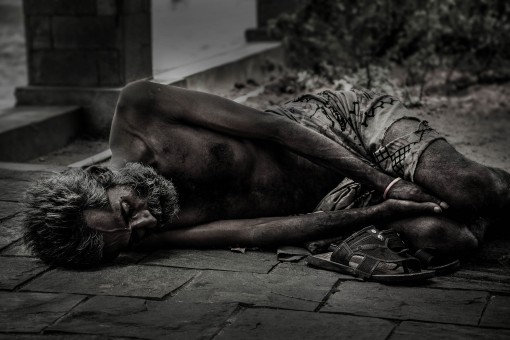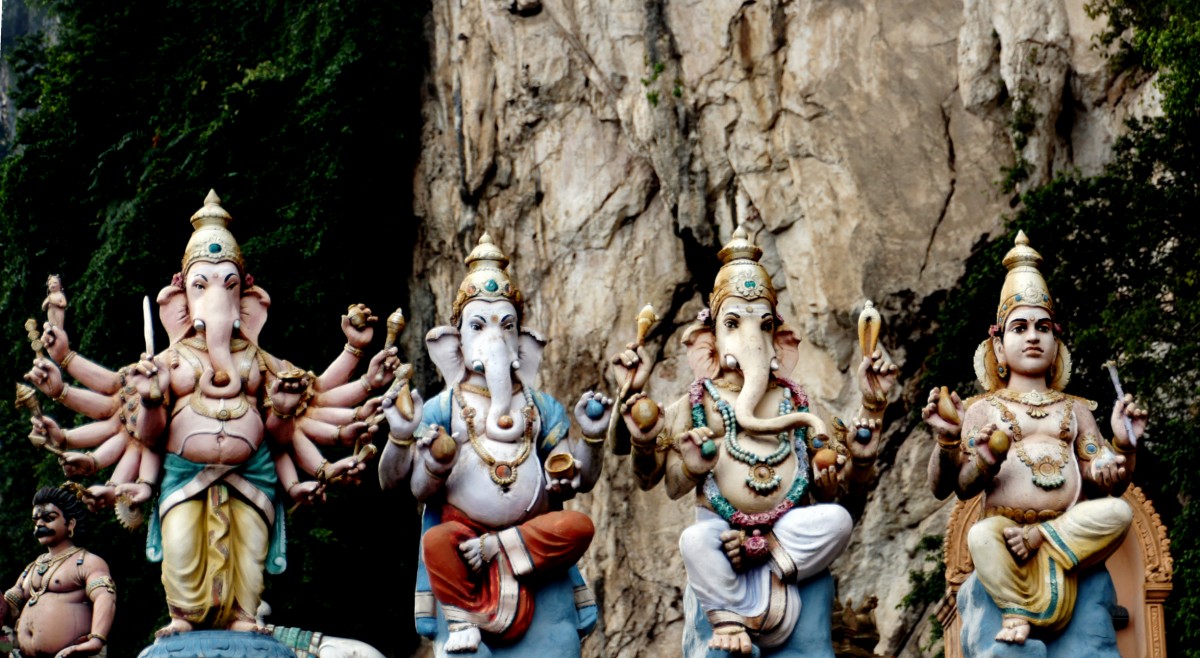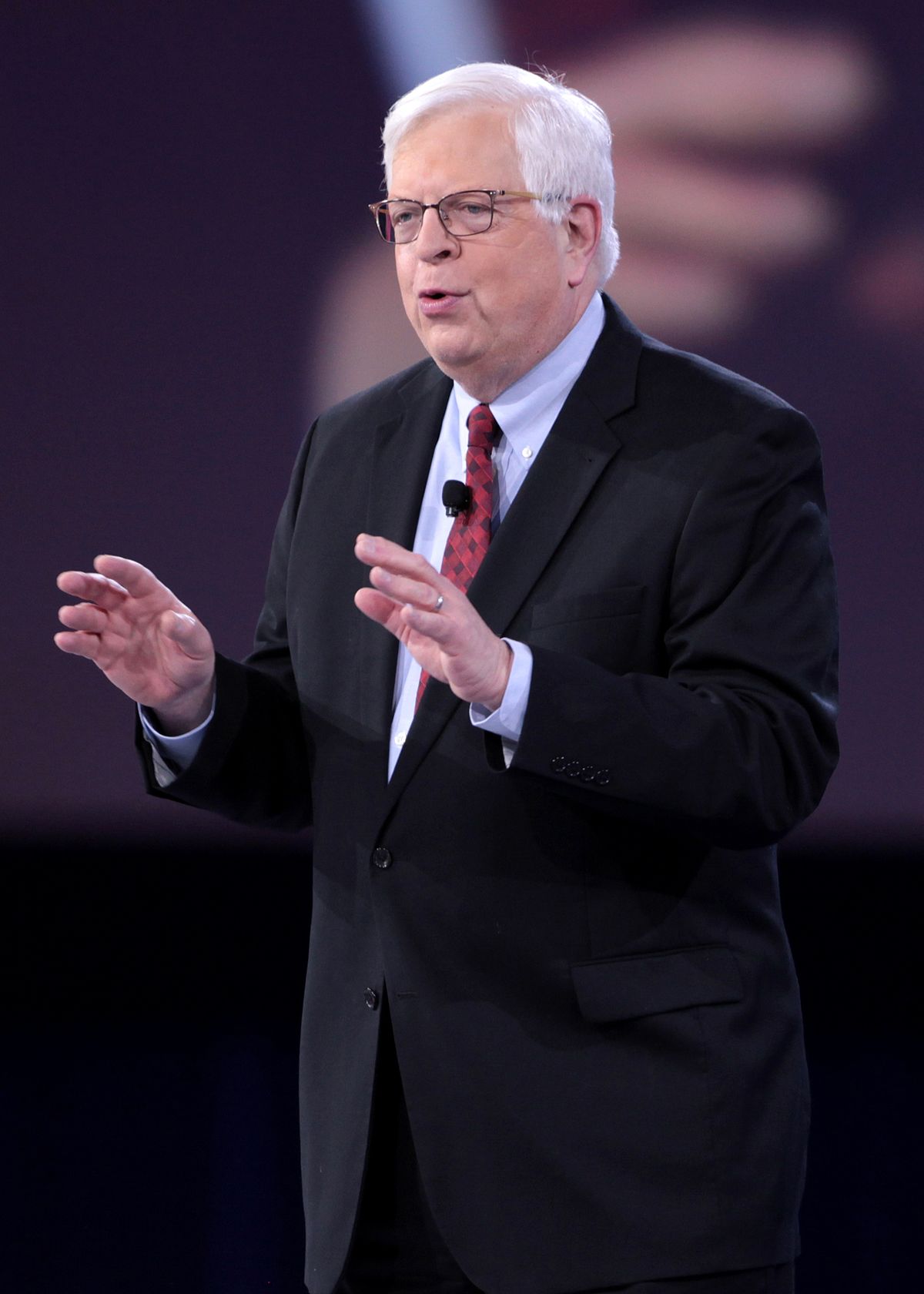Genesis chapter 3 records the rebellion and consequent fall of humans. The creation fell under a curse, and a vicious cycle of human poverty began. People worshiped gods of their own imagination, small family gods, tribal gods, capricious gods of nature with limited power. These gods were unpredictable, they ruled a mysterious, animated universe with whimsical abandon. History was something to survive, people lived in a perpetual cycle of poverty, never knowing what the spirits would bring, good or ill, light or darkness, sickness or health. Life was short and miserable, filled with floods and famine, one  catastrophe after another. The gods were to blame; worshipers sought to appease them, seeking their favor or some redress.
catastrophe after another. The gods were to blame; worshipers sought to appease them, seeking their favor or some redress.
The biblical narrative records God breaking the cycle of poverty. For example, He identified himself to Moses as I AM BECAUSE I AM. (Exodus 3:14). God is not some pagan, tribal deity. He stands outside the universe as the uncreated Creator.
The creator of the universe cut through the boundaries of space and time to speak to man. He revealed himself as a personal God, a covenant maker and keeper who speaks to humans. Genesis records God entering into three covenants with humans.
Three covenants broke the cycle of poverty
God spoke the Edenic Covenant to Adam and Eve and through them to the whole of humankind (Genesis 1:26-30). He showed us who we are, the imago Dei, and why we are here, to govern the earth as His vice-regents.
The second is the Noahic Covenant, given to all living creatures (Genesis 9:1-17). He restated the original cultural mandate of Genesis 1:27-29, and went on to promise never again to destroy the earth by water.
The third is the Abrahamic Covenant (Genesis 12-13) in which God announced that Abraham and his seed were a chosen people, responsible to bring the message of the one, true, moral God to all nations so they would be blessed, that is, reach their full God-given potential, and given opportunity to be justified by faith (Galatians 3:8).
These covenants were revolutionary because they revealed that we are here, not by chance, but for a purpose. All other cultures were bound by the endless cycles of time, history going nowhere. God reveals that history is going somewhere. We are here not merely to survive existential threats, but to shape history by our words, choices and actions.
The pagan gods were small and capricious. Life was unpredictable; people were subject to fate. There was no moral nor metaphysical framework for life.
In contrast, God revealed through his covenants that he was trustworthy; his word was his bond. The universe had moral and physical/natural laws. It was orderly. God could be approached and the universe explored. Each human being, female or male, rich or poor, old or young, had intrinsic worth. These truths changed the world.
Dennis Prager, social commentator, Hebrew scholar, writer, and founder of Prager University, writes about this in his commentary on the book of Genesis.
Prager on Genesis
The Torah [AKA The Pentateuch or the five books of Moses] is so utterly different—morally, theologically, and in terms of wisdom—from anything else preceding it … that a reasonable person would have to conclude either moral supermen or God was responsible for it. To cite just a few examples of what the Torah introduced to the world:
-
- A universal God (the God of all people): This began the long road to human beings believing that with one “Father in Heaven,” all human beings are brothers and sisters.
- An invisible, incorporeal God: Therefore, the physical is not the only reality. Life is infinitely more than the material world in which we live during our brief lifetime on earth.
- A moral God: All gods prior to Torah’s God were capricious, not moral. A just and moral God meant, among other things, ultimately justice will prevail (if not in this life, in the next). It also meant human beings, imbued with a sense of justice, can argue with, and question, this just God (the name “Israel” means “wrestle—or struggle—with God.”)
- A God beyond nature: God made nature, and is therefore not natural. This led to the end of the universal human belief in nature-gods (such as rain-gods). And sure enough, as belief in the Torah’s God declines, nature-worship seems to be returning.
- A God who loves and who wants to be loved: This was another world-changing concept introduced by the Torah to the world.
- Universal human worth: Every human being is “created in God’s image.” Nothing like this had ever been posited prior to the Torah.
- Universal human rights: Another world-altering consequence of universal human worth.[1]
Truth can change the world
These ideas are revolutionary. They have changed the world. They began with God breaking the whimsical bounds of pagan ideology and gods, by revealing Himself as a covenant-making and covenant-keeping God.
In these postmodern times, we have denied the existence of the one true God and the Judeo-Christian worldview derived from His existence. We have abandoned objective truth and reality for subjective illusions and pagan deities. As a result, the West has lost its rudder. We are reverting to lawlessness and chaos.
It is not enough to listlessly hope for the restoration of our societies, we must repent – be reminded, and turn our lives and attention back to the Creator and Savior of the universe.
- Darrow Miller
[1] Dennis Prager, The Rational Bible: Genesis. Regnery Faith. Kindle Edition.








